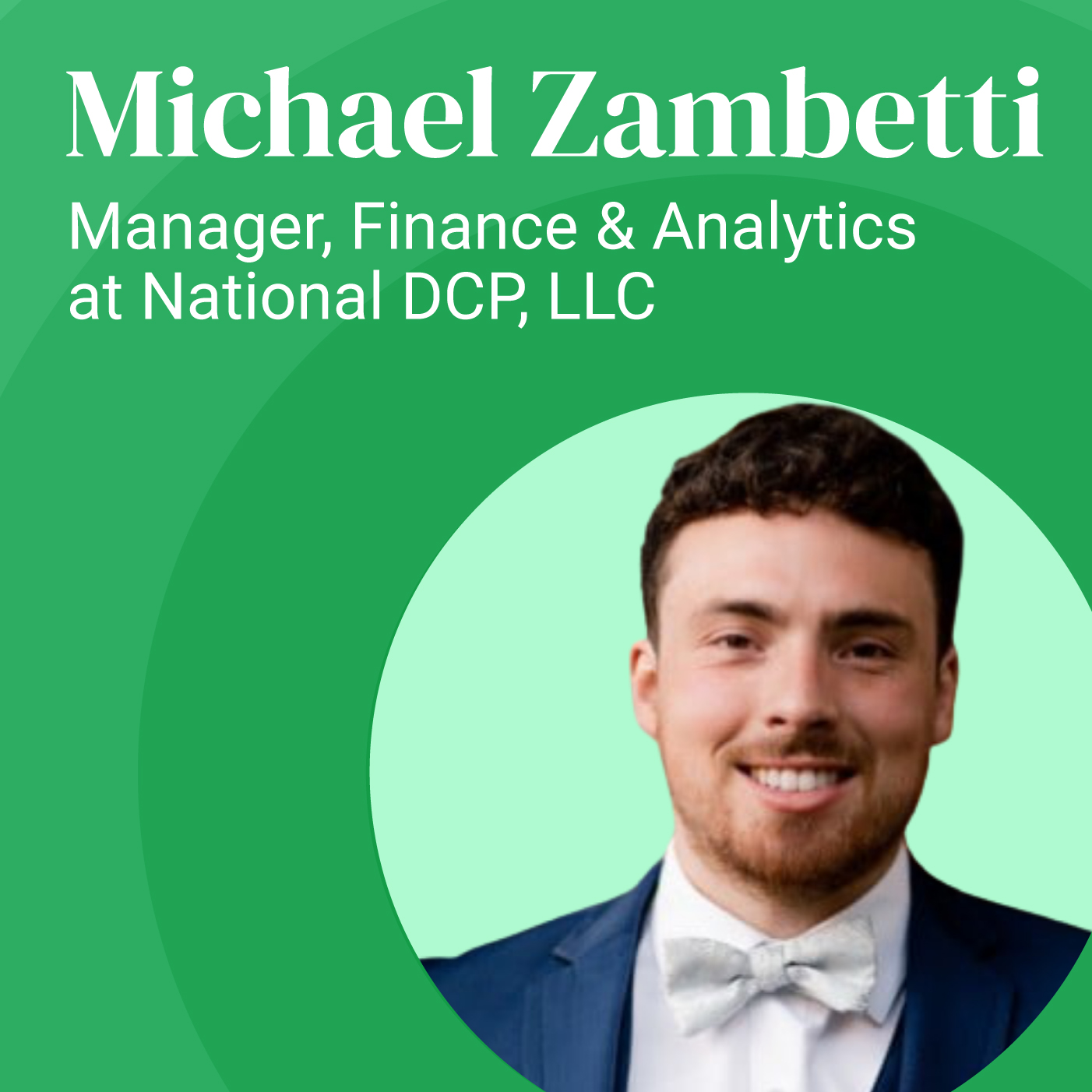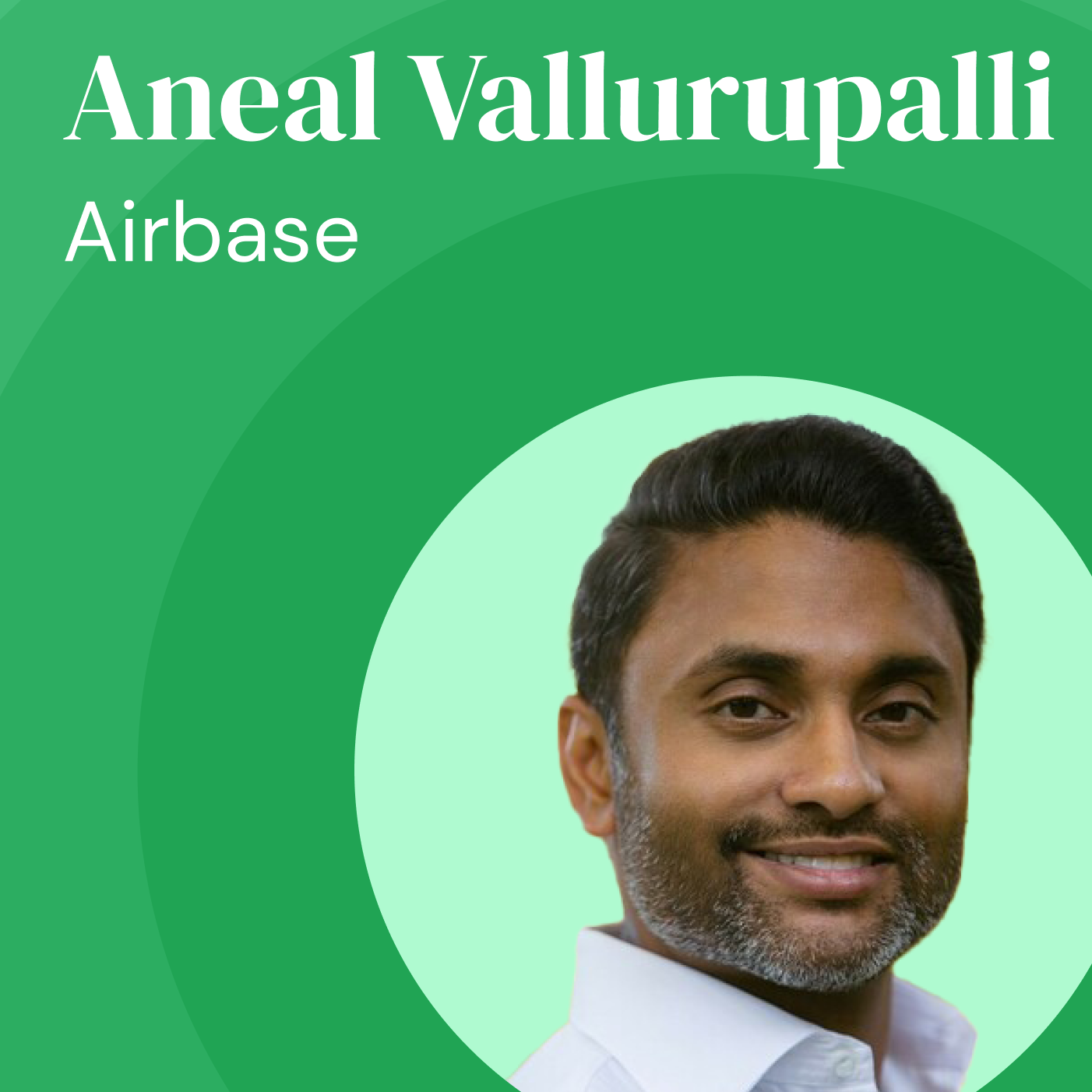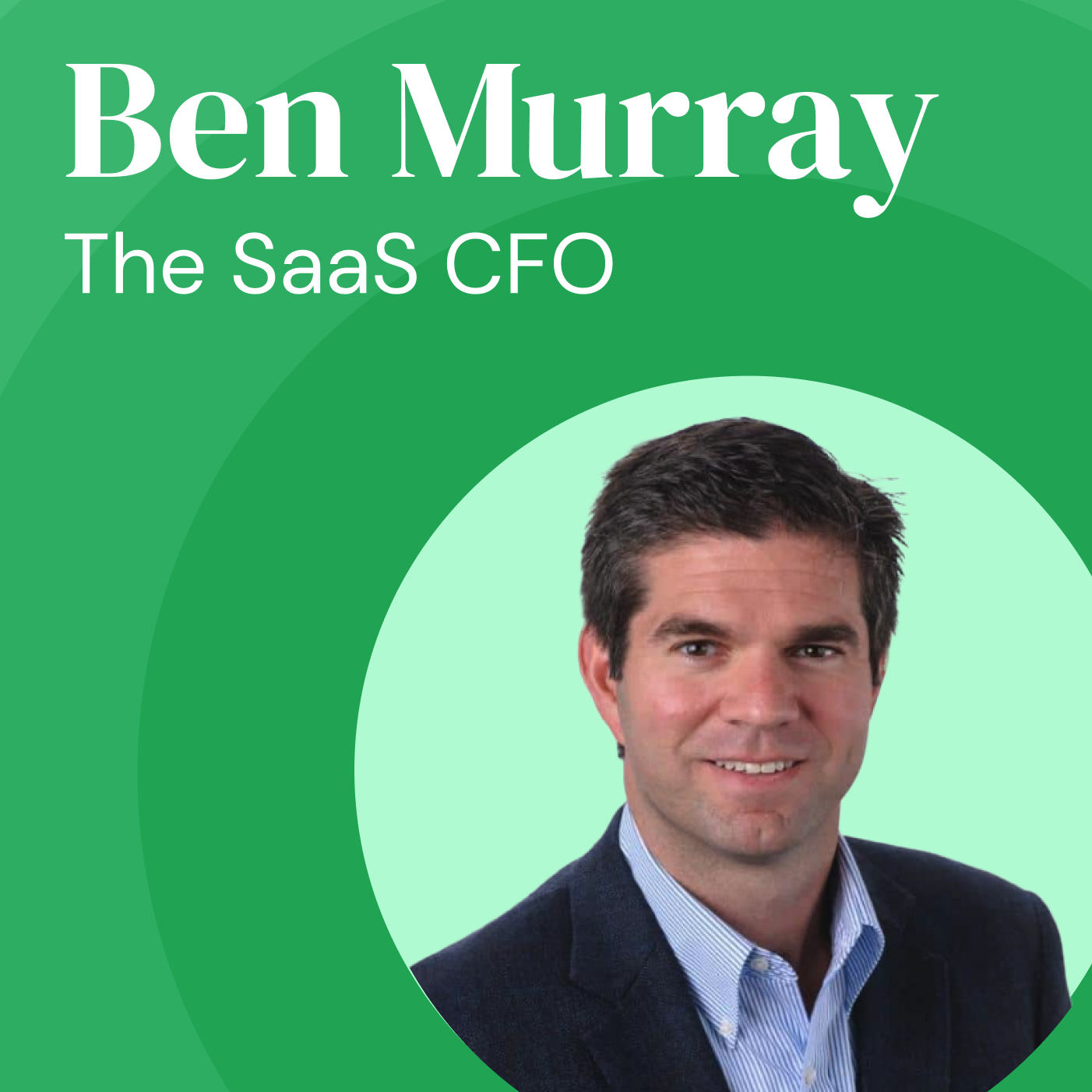Winning Your Whitespace with Data | Michael Zambetti
- 0.5
- 1
- 1.25
- 1.5
- 1.75
- 2
Rowan Tonkin: Hi, I'm your host, Rowan Tonkin, and welcome to Being Planful, the show for FP& A leaders and planning experts. Hi, everyone. Welcome to Being Planful. For my name's Rowan Tonkin, your host and CMO here at Planful. Today I'm joined by Michael Zambetti. He is a finance manager of data analytics as well in his role at National DCP. So firstly, Michael, welcome to the show. And secondly, how do you also end up with a finance and data analytics title?
Michael Zambetti: Thank you very much for having me here Rowan. I'm really excited to be able to introduce you to how I've gotten into this bizarre role you might say. So I obviously started out in finance. I've been with NDCP now for about five years. So just giving you a little bit of background, NDCP, we do all the supply chain management for Dunkin' Donuts. So I started out in the operation space and doing all the analysis and trying to improve our productivity, do variance analysis, forecasting and budgeting. And that was obviously my bread and butter. And I continued to progress in that route and started coming up with different strategies to automate our processes and dive into different areas that had never been seen before. And as I continued to progress down that route, I had an opportunity presented by my management to break away from finance and just dive head on into the analytics realm. So started learning Python, these different coding languages to further opened up the realm as far as what I could automate. So I wasn't bound to finance. I actually wasn't in finance at all during that short stint. I had the flexibility to automate processes throughout the entire organization. So I had a lot of white space and a lot of opportunity to use my creativity, to just improve the organization without any type of buy into finance. And eventually I was able to combine that with more of a corporate finance manager responsibilities as well. And so now with that component, I was able to combine the analytics piece and doing all the process automation and looking at these massive sets of data and then put a financial outcome to it. And so I feel like the combination of those two are very, very powerful if you can use them together.
Rowan Tonkin: Yeah, absolutely. I think our listeners will probably agree with me here when one of the top challenges when I'm speaking to folks in FP& A is getting clean and act curate data and timely data inside of whatever forecast or whatever they're building up. And various models, it's like data access is always the biggest challenge. And so having that sit within finance in some ways must give you a real advantage than maybe some of your other peers have.
Michael Zambetti: Absolutely. And I think another point to that as well, is that in finance, some of the hardest part is identifying where that data is. So if you're already very in tune with where that data is coming from, never mind the whole automation piece with analytics, but if you are aware of where that data's coming from, and you're aware of what is available to you and what is not available to you, you can unlock a whole new realm of financial analysis, which may have never been touched by your organization before.
Rowan Tonkin: Yeah. And one of the words you used before was white space. So tell me a little bit more about what you mean. Most of us know white space analysis is where are my opportunities in my customer base, where are my opportunities in my prospect base. Sounds like you have a different frame of reference for that.
Michael Zambetti: A little bit, a little bit. So I find my terminology for white space to be the most fun and exhilarating part of finance. So as everyone knows within finance, we have our typical cadence reporting. So it's just a part of the job in which we have to do reporting to demonstrate the financials and the overall health of the company and certain aspects. The white space is where it gets really fun. So that's where you go and you have extra time to exhibit your creativity and go and find different strategies and exploit those. And you're able to go and find opportunities for the company to ultimately drive that value add to the bottom line.
Rowan Tonkin: Do you have any specific examples that you can share? We're on our podcast here, so any examples that you can share of where you found those white spaces and what that represented, A, to the company or what value that may have represented to a business stakeholder?
Michael Zambetti: Yeah, yeah, absolutely. I did one analysis, which it was actually coupled with my operations experience in that background. And so what I did was I was able to identify by pulling in all these different sets of data, I was able to identify that we were spending a lot of money to these third parties logistics firms, because obviously we know supply chain is chaotic right now. And so we had to use them more than we otherwise might have. And so what I was able to do is I was able to combine that data and identify how much cost we were spending on this third party with how we could possibly do it ourselves, and how much money that would be able to save. And so for instance, what we would do as opposed to spending the money to them, to be able to bring that product in- house, we would deliver product from one distribution center to the other distribution center. And then we would save money. We would generate income by delivering product for maybe like whether it's other companies or back to our own company and picking up that product from the vendor ourselves. So by having that extra time to be able to look at that, that wasn't any task that was provided for instance. But being able to have that data available to us and really see full picture and not be tied down with just month end close, it enabled me to really start digging into the business and find this stuff. And so the overall outcome of that is, it was an outcome which presented hundreds of thousands of dollars of potential savings per year. And it actually opened up management's eyes, not only to that example specifically. But honestly, at even a larger scale, because now that that was unveiled, we were able to take that in another direction and think, how can we do this? Not in this one transfer situation that's on our East Coast, but how can we do it across the entire network?
Rowan Tonkin: Yeah. And so, given some of what you said today, it sounds like you have the bandwidth to go and explore these white space opportunities.
Michael Zambetti: Yeah.
Rowan Tonkin: And when I speak to a lot of people, there's some people in your camp, but there's a lot of people in the," Oh my God, if I only had eight hours, imagine what I could do with it." So how have you ended up in this position where you've got that time to do that real value add that a lot of finance leaders actually really want to get to, but they're still stuck in that monthly, quarterly, yearly cadence type work?
Michael Zambetti: Yeah. So I would say it all originates from that original capability to automate your processes and provide that time savings. So we have continuously done that for the past decade. We've done tons and tons and tons of automation. But by doing that automation, we're not necessarily cutting heads. What we're doing is we're relocating those resources. So previously, a lot of our resources may have been tied up in more transactional stuff. Whereas now we may have a lot of those time savings, so we don't need as much of the transactional stuff, but we still have the same head count. So what we're doing now is we have that extra bandwidth because it takes our typical month end close... Our month end close process, for instance, is only about three to four days. So it's a very short timeframe. And it started out, actually it used to be like 20 days, I want to say about seven years ago. And then it was about six or seven days when I first started five years ago. So what we keep doing is we keep shortening these processes, which, like I said before, it provides very important outcome, but it's not that value add. So we keep shrinking those times by automating processes. So then we have more time and flexibility with our staff to really dive out into the rest of the space. So our goal in my group specifically, is to really spend less than 50% of our time doing those cadence reporting. And so have the other 50% of our time to really be able to dive into your own analysis. And I think that also brings up another point as far as it really drives you to be creative and to use your own mindset. And for me personally, having that opportunity to exhibit my creativity, it gets something out that I need to get out there. And if I just keep it in, I'd explode. I wouldn't know what to do with myself.
Rowan Tonkin: Yeah. And I think that's, we hear a lot about the great resignation coming up and it happening right now. And I think where we see a lot of that happening is where people aren't able to exhibit their value add to a business. And they're like," Well, I'm going to go find somewhere well where I can do that." So sounds like National DCP have got you locked in because you are able to do the things that you want to do right now. And the other point I'd like to make for our listeners is what Michael just said there, was I think seven or eight years ago, it was taking 20 days to do their month end close. Five over years ago, it was six or seven, and now they've got it down to three or four. Sometimes there is a magic bullet and you can do things really, really quickly, but just getting on that journey of that continuous improvement journey is also really, really important because, over time that consistency of just trying to fix this little part of the process or that little next part of the process, ultimately results in where Michael is right now, in his role, where they actually have that time back. And by doing it marginally over time, you can still keep delivering the value you need month over month over month and quarter over quarter, I think is also important. I'm not sure if that was a set strategy by your CFO. Was that something that was very intentional?
Michael Zambetti: It was, it was. So that's definitely was the intent a while ago is to be able to reallocate those resources. And so that's another thing which I've been a huge fan of at our company specifically, is the investment that we've put in technology. So we continue to spend money, whether it's in EPM, whether it's in our ERP software. So we used to not even have an ERP system back when we were doing the 20 days. And so that was a huge benefit, is getting out of Excel and being able to go into that, and getting into RPA softwares and all this other kind of stuff. I'd say that that support from upper level management really enables us to do that as well.
Rowan Tonkin: That's great.
Michael Zambetti: In addition to our own uses.
Rowan Tonkin: Yeah. And what does that mean for your business partners, whether that be on the operations side? How do they feel the relationship is between them and you, and the finance team?
Michael Zambetti: I think that's an interesting point you bring up and it's because that was something which was very distant in the past, is our operations leadership was really leading their own distribution centers and they were really engulfed in their own operations and running that solely. And finance was very separate in their fashion, accounting was very separate in their fashion. So by breaking down these barriers and improving this automation and investing in these different technological companies, for instance, and then automating processes and getting everyone's buy- in, we were ultimately able to really bring the operations leadership into our process. And so it gives them a lot more comfort in their financials as well when they're able to actually provide their input and be able to have their hand in the pie, if you will.
Rowan Tonkin: Yeah. And it probably gives you a lot of insight too, now that you probably have a shared language now where you understand their business and they understand your business. And so it's not just a one sided relationship where you are adding value to them. I'm sure they're adding value to you and your processes.
Michael Zambetti: Oh, absolutely. And honestly, with the whole virtual world that we're in right now, where basically everyone's remote, I think it's that much more important to be able to ensure that collaboration through technology and ensure everybody's on the same page, because it would be very, very easy in today's day and age to become disconnected with your financial support team, for instance, or your operations leadership on the other side of the spectrum.
Rowan Tonkin: So let's come back a little bit to some of the data analytics work that you do. I'm sure a lot of our listeners would want to understand, well, what does that environment look like? What type of data is in there? What's its frequency? Is there anything you can share from that front that would help our listeners understand how hard, how complex, what this environment might look like?
Michael Zambetti: Yeah, yeah. Sure. It's a little bit new for us, even at this point. So it's probably, I would say under a year, maybe a little more. It's about a year and a half as far as when we've really started diving into this space. And so it entails being able to dive into all the different data within our data warehouse, querying that information and ultimately, just pulling in all of our different data from different sources, whether that be through a language like SQL for instance, in which we're able to go and tap into that backend data, or we use Python for instance, a lot as well. And we're actually getting into different machine learning algorithms as well. And so that machine learning is a very, very powerful tool, which I don't know if that completely answered your question, but that machine learning I think is a very, very valuable tool because it enables us to really identify opportunities that we didn't know existed before. And especially in today's day and age, where data is becoming bigger and bigger and bigger, and there is that many more opportunities that come to us. So for instance, I even read a book recently where they have data out there by satellites, where you're able to identify foot traffic going in and out of stores. That's just one of many examples. But because there is so much data out there, we don't even know what's out there. So it becomes that much more important to be able to use some type of coding language or something that is able to do some of that analysis for us, because we're only capable of doing so much ourselves. We can't look at millions and millions of lines of data, but the computer can do that for us. And so that's why it's more important for us to be able to tap into that.
Rowan Tonkin: Absolutely. And so one question I have for you is obviously you started on this journey, very much from a finance perspective, how do I get more data, how do I understand this to help provide my finance expertise to other departments or specific opportunities that you may find in the business. So what skills did either you personally, or the team have to learn along the way, or what skills did you have to go and bring in that you didn't otherwise have at that point in time? I know you mentioned Python. It's not often I speak to finance leaders that know how to code in Python, and I'm not sure if you can. But that that is certainly something that you don't hear all the time. And so really interested in how did you go and acquire those skills, whether it's learning them or bringing them in- house through contractors or employees?
Michael Zambetti: Yeah, yeah. Absolutely. Well, one thing, you did hit on something before, and it was talking about how do we get into that data analytic space in the first place. And I think it comes down to still retain that entrepreneurial spirit and then also being very, very inquisitive. So always as asking why, why, why, why, why. Because you end up getting down to these rabbit holes where the bottleneck is ultimately," Well, we don't have that data." So then it comes to," How can we get that data?" And then that's what leads you ultimately to the Python, the analytics route. And so when we first started, so it was just myself. I had no background in analytics. I was solely financed and my company entrusted me to go and learn this new language. They gave me the resources. So for instance, they gave me a book. I went on a teaching site, Udemy, and I just started researching all myself because they entrusted me to go and automate processes in the past. They said," Go ahead and learn that." So I think one, that's how we started out. Then what I did is we brought on someone who had that combination, and that was very, very technical and could write macros for instance, in Excel, but never really got into Python. But we provided him the bandwidth, back to the original story, as far as if you had the additional bandwidth, you're not only able to develop the company, but you're able to develop yourself. And so we provided him that bandwidth to go and learn Python. And we gave him the task because now as a manager, since I knew what Python could do, I knew the capabilities of it, I could help guide him in the direction with different projects that I know we had struggled with in the past, that I knew that coding language could accomplish for us. So I guided him with different projects. I could apply the financial outcome from some of the projects that he would do after he would unveil these incredible insights. And ultimately, I sculpted him to where he, all of a sudden, obtained this phenomenal skillset. And he actually just left recently to go to a consulting firm, which is awesome for him. He really felt like that was more of his path to become successful. He wanted to go into consulting route. But with that being said, it opened up another route for us. We just hired a senior data analyst role, actually. So now we have someone who is specialized in doing those regression analyses, specialized in doing the machine learning and has done that before. So I'd say there's probably two parts to that question. Yeah, we can one, develop it inside within our own company by providing that person the ability to grow. But then also, we can outsource and just really dive heavy into someone who already has that skillset. There's really two different avenues that you can do there.
Rowan Tonkin: And so I'm really curious how much have you had to rely on your IT counterparts to things that often scare us? And I'll say that as the marketer and salesperson in the room too, is getting access to the data. I don't want to break anything, I don't know if I have the permissions, all of that sort of stuff. How much have you had to rely on your IT counterparts to really help you unlock all the value inside of that data on top of then also learning all the new skills?
Michael Zambetti: Relying on the IT group, it's important in the first stages, I would say, more than anything, because it is important to be able to obtain the access to get into those different databases. We might even have need to have some type of duplicate environment, which we're not able to directly impact some of the stuff that they have set up. But either way, that is a very important aspect. And also, for instance, SAP, we have to get special API permissions from them and users set up. So that is a very vital part to be able to have an IT group that can support you in starting out that journey. But once it is set up and you have those initial connections established, it's really down to the individual to really research stuff, as far as how to increase that automation, increase the capacities of that code, I would say. So it's more important in the first stages than it is an ongoing collaboration.
Rowan Tonkin: Yeah. And then as you start to see, you talked about satellite imaging and pulling foot flow traffic and things like that. That's a life that I was in involved in at my last company.
Michael Zambetti: Oh, really?
Rowan Tonkin: Yeah. When you think about that kind of external data sources, third party data, how much of that are you bringing in, into some of your financial analysis to determine things like, well, how much product do we need in certain stores at certain points in time? And I'm sure you get a lot of that from Dunkin', probably themselves, right? I'm not sure how much data they're sharing with you. But in order to service them properly, you probably need to be very close in lockstep with them and then also relying on not just them, but other sources of data. How much is that playing a part in your world?
Michael Zambetti: So I'd say that's a purpose behind us getting into this route as well. So yes, we definitely do get information from Dunkin' as far as what they're seeing, but it might be a little higher level than what we actually really want. And especially in today's day and age, where the economy is rapidly changing, supply chain is changing all the time. We have different shipping containers held up at ports, we're not able to get certain product in, we have huge changes in seasonality throughout the year, which is very abnormal, especially with all these different COVID outbreaks. So it becomes that much more vital to be able to gain these insights into our data so that we can adequately plan for these changes in seasonality, or we can get ahead of it, ensure our days on hand stays stable so that we are able to adequately plan for these massive fluctuations and we're able to maybe have some type of leading indicators before we get hit by something. So that's why it's so much more important in today's rapidly changing economy to be able to identify those ahead of time. So really the answer to your question is we don't do as much as we really like to, but we're just now starting to get into that and starting to be able to rope those third party analyses and statistics and data into our analysis, and do regressions on that and be able to identify what correlates to our demand for our customers.
Rowan Tonkin: That's actually where I was going to go next. What is next? What is the vision in the next 12 months, two years, in order to get to that place? I'm not sure any company will be in the nirvana state that they actually want ever because everything changes all the time and it's faster than ever before, to your point. But you guys seem like you're in a more advanced situation than many companies out there. And so I'd love to hear what is next, what's the vision for something like bringing that senior data analyst on to do a lot of that data science work seems like there's an end goal there, or at least a vision state that you're moving forward towards.
Michael Zambetti: Yeah. So I'd say one goal, especially as far as that individual goes and as far as that aspect of our business is that's the way that finance is going. And like we talked about before, we have so much data and being able to combine that analytics function with finance is going to be able to provide absolute phenomenal insight into so many parts of our business that we may have never even seen before. And we've already started down that path where we are able to show absolute, phenomenal savings and value add from that individual and from that function altogether. And so ultimately, what we plan on doing is after we're able to continue to demonstrate time and time again, all these phenomenal annual savings that we're able to drive based off one single individual, that single individual is going to become absolutely overwhelmed with work. And they're going to be drinking through a fire hose as far as different projects we throw their way. They're not going to be able to survive. So ultimately, what's going to happen is we're going to probably have to hire on additional individuals that roll up into possibly an analytics team on its own, in which we're able to just gather so much data, automate so many different processes and drive so much value throughout the organization. But it really comes down to first, being able to demonstrate that value add. I'd say that's the ultimate goal with that one.
Rowan Tonkin: And then to point earlier, you wouldn't even be in this position if you hadn't done all that other automation, right? You'd still be stuck in the old ways where you'd still be closing the books day 13, day 14. And by making those investments now, you're getting to the point where you're reaping all of those rewards. Is that fair to say?
Michael Zambetti: Absolutely. Absolutely. So I would say, five years doesn't seem like that long of a time. But it has changed so rapidly in that five years that it's nowhere close to the same type of analysis that we provided previously. It's been an exponential change. And like you said, took a lot of legwork to begin with to get to that point, but now the machine is oiled well, the gears are functioning well, and we're rolling and just now starting to see the fruit of all that grind that we put in up front. So it's very rewarding to be able to see that as well.
Rowan Tonkin: So let's talk about some of that grind a little bit. I think that's an interesting angle here is, when you think about that initial jump into, I've done all that hard work, that finance transformation. Now I have some time back and I'm in my white space opportunity. Talk to me about that learning curve of going from probably being a very spreadsheet, model understanding, good understanding of data in the world of spreadsheets to then Python. What can you tell our listeners about that jump, that hurdle, what you found surprising, what you found easy or what you found really hard?
Michael Zambetti: Yeah. I'm not going to lie, that was pretty scary to begin with. I had no experience with it as well. Never did anything similar to it. Macros, the extent to my knowledge there was I would press the record button and go press a couple buttons so that I could continue to do that in the future. So it was like jumping down a black hole, which I just took it with open arms and said," All right, here we go. I guess we're doing this one." Looking at all those courses and everything, it was completely learning a new language. But honestly, when you start digging into it and if you do have that desire to learn, you have that desire to grow, you have that desire to drive that value in the organization, that entrepreneurial spirit, it's honestly very rewarding, at least for me. In many aspects, if you continue to do a certain role within finance, you hit an end of a learning curve at a certain point with certain aspects. And so it's very pleasurable to have additional things thrown at you, which might even be completely out of left field like coding. And so I started looking at it and I started learning the syntax and it's honestly not as difficult to learn as some people might think. So I think the most important aspect to that is just not worrying about that massive hurdle, not worrying about that scary introduction into learning a whole brand new language. It's just getting into it and just trying to learn it the best you can because it really isn't that difficult. It's as simple as setting variables. As opposed to say an if statement in Excel, it might be a for statement in Python. So it's there's a lot of crossover in these different softwares, which people aren't really even typically aware of. But it becomes very prevalent very quickly, and then it really opens your eyes to what is really capable of even being automated that you may have never even known before.
Rowan Tonkin: Yeah, that's really interesting. I have the pleasure of having a bachelor of internet science and technology. So that's what I actually studied at school. But I failed coding multiple times. That was the one subject that I was never really good at. And it's interesting, we're at this place now where I talk with my CEO, Grant, a lot and one of the things that we talk about is finance teams feel like we are marketing and sales ops teams were about 10 to 15 years ago. Right? The investment in technology is really burgeoning and we're getting a lot of finance folks with skill sets either coming in that they've already got the skill sets that you're talking about, like these data analyst folks that are coming in, they already have these skill sets, or they're going out and learning them like yourself. That's what happened to marketing and sales ops people 10 to 15 years ago is we had to go and learn all of this because we had to, right. It was forced upon us with all this data and all this market insight. And then we became really, really good at it. Right? I was speaking to my team yesterday and I was like," Is anyone scared of adopting a new technology?" And no one put up their hand because our ops team can just integrate with anything, they can implement technology like that. And I don't think finance is at that point yet, but we're at that inflection point where it's really starting to happen for a lot of organizations. And they're starting to overcome that fear that you talked about of, I was staring at this black hole of a complete new language and I just embraced it. I think that's happening more and more in the marketplace right now with inside finance teams and that's only going to increase in increase. And so my guidance to the listeners is if you're at that inflection point, like Michael was, definitely jump in. Embrace it because that advantages not only to the company, but for you personally are going to keep paying off over time. I can't stress that enough, that those folks that went and became technology forward marketing leaders and sales leaders, they're the ones running marketing and sales teams right now because they understand the ins and outs. And I think that's where we'll see future CFOs come from, is those CFOs that have that true understanding of the business from a very data driven perspective. So Michael, any final thoughts from yourself? For those people that might be at that inflection point and they're about to make that jump like you did, what advice would you give them? Is there any books that you read that really opened your eyes? Any podcasts you listened to? Love to share your insight from that journey with the listeners.
Michael Zambetti: There was a number of different books. I don't remember off the top of my head right now. But I would say that the biggest piece of advice I can offer would be as far as the coding, you're not going to get that immediate reward in the first month or the first two months or the first, I would doubt even six months. It's going to be a process that you have to have patience with. So you might need to spend the time understanding where your data's coming from, understanding what's available to you before you can really start seeing the fruits of that automation and of being able to utilize that data that you never had access to before. It's definitely more of a long term play. But like you mentioned as well, the organizations having the most success in the world right now are companies that put in that time and put in that investment into that analytics realm a while ago. So now they are so far ahead of the curve they have just blown past competitors. So it's more of a long term play that you have to be patient with, and honestly, have that excitement to look forward to at your company more than anything, and know that will help set you apart and segregate you from your competitors.
Rowan Tonkin: Just touching on that, when you started going down those, learning Python and trying, did you come across, like, was it like a maze where you were just going down one part of the maze, then you'd end up at a dead end and you'd be like," Oh man, I have to go back and restart," or was it more just like that you felt you were climbing a mountain and you'd find a hurdle and you're like," Oh, that's really hard, but I got to go over it," or did you find there was a lot of backtracking? What was the experience for you like?
Michael Zambetti: I wouldn't say as much backtracking. That's the pleasurable part of coding is it's all iterative and it's all moving forward because it'll stop you dead in your tracks and say, there's an error that you can't go forward. You more hit blockades, and then you might just become a Googling wizard. And that's another great thing with coding is a lot of it's open source. So a lot of it's free for individuals to install. And then people have done it for so long now at this point and have put all of their different code out there. So a lot of that is available for people. If you do the proper research, you could reuse other people's code that have done the exact same thing as you. So sometimes it's as simple as being a good Googler, really, and being able to overcome those obstacles by just identifying people who already did it well before you.
Rowan Tonkin: Yeah. Awesome. Well Michael, it's been a pleasure to speak to you today. I'm really glad we had you on. And for those interested, feel free to connect with Michael on LinkedIn, if you wanted to chat more. And if you do have any of those book recommendations, send them through and I'll try and put them in the episode links to this podcast. But Michael, thanks again for coming on. And everyone, thanks to listening to Being Planful. Make sure you hit subscribe on Apple Podcast, Google Play, Spotify, or wherever you get your podcast, so you don't miss an episode. Thanks for stopping by.
DESCRIPTION
On this episode of Being Planful, Rowan speaks with Michael Zambetti, Manager, Finance & Data Analytics at National DCP, LLC, about finding value in your whitespace. Tune in to hear how Michael wound up with a finance and data analytics title, his thoughts on getting in tune with your data, how to leverage automation to gain time for real value add, what it's like in a data analytics environment and how to acquire a data analytics skillset, and much more.









